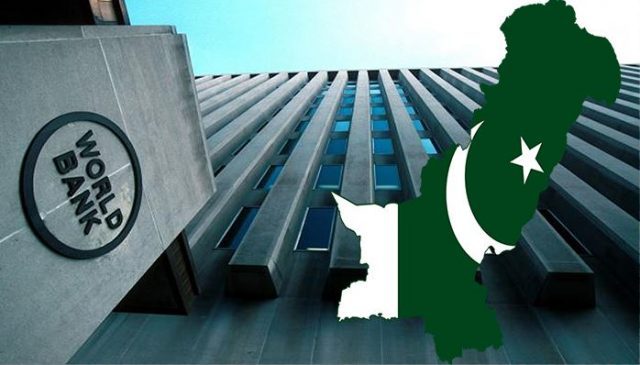In response to a report published by The Express Tribune and monitored by this scribe on Friday, the Ministry of Economic Affairs issued a statement.
According to the ministry, the report published by media houses referred to the cancellation of a loan which was never approved by the World Bank board or signed by the government, hence the report was false.
The report was published without seeking the perspective of the ministry of energy and the ministry of economic affairs.cAccording to the ministry, PACE-I, the initial project, worth $400 million, was approved by the WB Board in June 2021 and disbursed accordingly.
The second phase, PACE-II, was never initiated, as the focus of the WB support shifted to investment projects, including the $1 billion financing for the Dasu hydropower dam and support for power distribution and transmission reforms, the ministry statement said.
There was no decision to cancel PACE-II, as it was never prepared in the first place, therefore, the claims made in the report were misleading and misrepresented the facts, particularly regarding the ongoing successful reforms in the energy sector supported by the World Bank.
The World Bank’s Programme for Affordable and Clean Energy (PACE) was initiated in 2020 as a budget support programme, and all prior actions required under PACE-I were completed successfully, including tariff revisions with IPPs, approval of the National Electricity Plan, and subsidy rationalisation.
In the past few months, the World Bank’s support to Pakistan has primarily been directed toward the IPFs. “The Government of Pakistan has successfully secured record disbursements of over $2 billion in the last two consecutive years, with a target to achieve similar disbursements in the current fiscal year.”
“The Government of Pakistan has recently shifted its focus from DPFs to IPFs, driven by urgent infrastructure needs in the Power Sector. These include improving generative capacity, enhancing transmission efficiency, and minimising line losses,” the ministry stated.
“As a result, the PACE-II programme was never part of the budget estimates for FY 22, 23, or 24 and has had no impact on the country’s external financing requirements or budgetary support from the World Bank,” the statement added.
The original report published by Tribune stated that due to Islamabad’s failure to meet key reform conditions the World Bank had cancelled the $500 million funding. One of these key conditions included renegotiation of power purchase agreements under the China-Pakistan Economic Corridor (CPEC).
It stated that this funding was critical to securing budgetary support. The government’s renegotiation efforts with independent power producers (IPPs), including CPEC-linked plants, have yielded limited savings, while structural reforms like private sector participation in power distribution remain unfulfilled.
It also said that the World Bank has confirmed a shift in its strategy, focusing instead on direct project financing, such as the Dasu Hydropower Project, rather than policy-based lending. Most importantly, the report stated that the “cancellation” may impact Pakistan’s fiscal plans, including its target of securing $2 billion in loans during the current financial year. Coupled with the absence of any new budget support loans, filling the external financing gap of $2.5 billion identified by the International Monetary Fund (IMF) remains uncertain.
Clarifying this, the ministry statement said that, “The World Bank remains Pakistan’s largest multilateral development partner, with an active portfolio of 53 projects worth $15.33 billion,” the ministry said in a statement. “Since 1950, the WB has provided Pakistan with over $46 billion in financial assistance,” the statement added.
The ministry further said that the World Bank supported Pakistan through various financing instruments, including Investment Project Financing (IPF), Programme for Results (PfR), and Development Policy Financing (DPF).
Since 2009, the WB has provided DPF support to Pakistan for 12 programmes worth over $5 billion in critical sectors such as revenue and finance, energy, social safety nets, and human development, the statement continued.
Among the key DPFs signed in recent years were the Securing Human Investments to Foster Transformation Development Policy Financing (SHIFT-I & II), which amounts to $900 million to strengthen health, education, and civil registration systems; Resilient Institutions for Sustainable Economy (RISE-I & II) worth $850 million to support fiscal management and competitiveness reforms; and the Programmes for Affordable and Clean Energy (PACE) worth $400 million to reduce circular debt, decarbonise the energy mix, and improve distribution efficiency, it added.
The ministry of economic affairs said that it is also negotiating projects worth approximately $1.5 billion during this fiscal year.
The ministry viewed the media report as a misrepresentation intended to cast doubt on Pakistan’s successful engagement with the International Monetary Fund (IMF) and its positive impact on macroeconomic indicators. “It also seeks to create unnecessary concerns about Pakistan’s excellent partnership with the World Bank,” the statement said.




